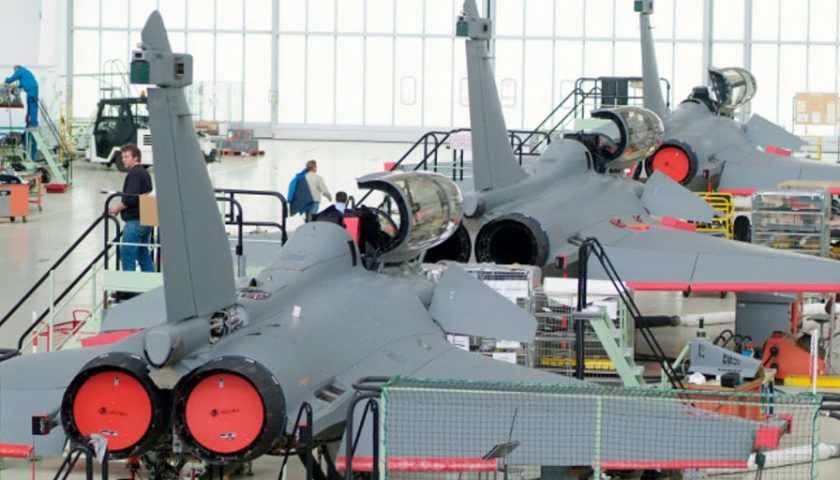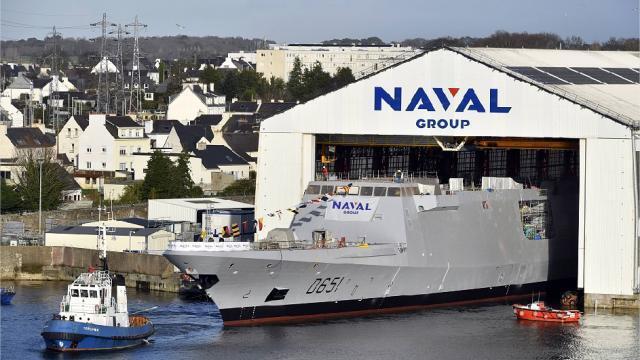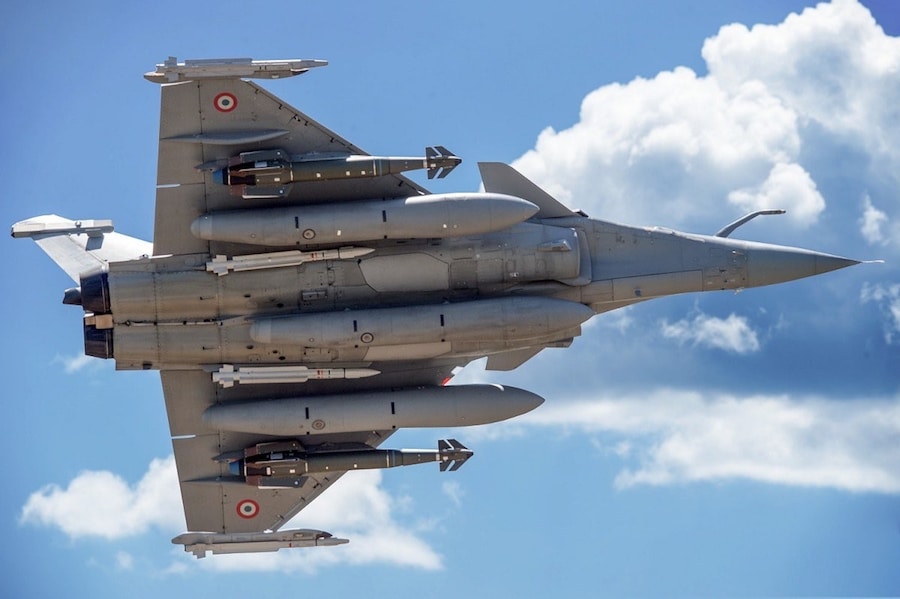Obviously, French President Emmanuel Macron and his Greek counterpart Prime Minister Kyriakos Mitsotakis have decided to go quickly and far in terms of military and industrial cooperation between France and Greece, to block the road to the Turkey in the eastern Mediterranean. Indeed, according to the Greek press, citing concomitant official sources, the two men are to meet on September 10 to sign a Defense agreement, but also, if the deadlines are met, the signing of command of a squadron of aircraft Rafale, as well as, potentially, the order of the two FDI Belh @ rra frigates, which until now had been stopped.
Indeed, the two heads of state have obviously decided to directly steer these files which have taken on a strategic dimension for the two countries. On the Greek side, it is the excitement, because it is necessary to obtain the approval of all the ministries concerned by such acquisitions, as well as of the Parliament, in an extremely short time. Meetings with French officials from the Ministry of Defense and the DGA, as well as with the industrialists concerned by the file, have been increasing in recent days, so as to be able to present a complete file to the state authorities on time. for validation in what would be, according to the specialized Greek press, the most important effort in favor of Defense and Greece's deterrence capabilities since 1974.

On the French side, President Emmanuel Macron would have taken charge of the file, particularly concerning the budgetary aspects, making it possible, it seems, to find firm agreements with Athens. So, the 18 or 20 Rafale acquired by Greece would be sold for around 1 billion euros, a particularly low price, even taking into account the 8 second-hand devices sold free of charge by France. We can deduce from this envelope that all the training of the Greek aircrews and ground teams will be carried out by the Air Force and possibly the Naval Aeronautics deployed on site in Greece in application of the Defense Treaty, so as to allow the rapid entry into service of the Greek squadron. Information regarding the possible return of the Belh @ rra in the Franco-Greek negotiations, if they were expected, remain very fragmentary. However, it can be expected that, as in the case of Rafale, the presidential intervention in the matter made it possible to re-break down the development costs concerning the specific requests of Greece, so as to lower the price to an acceptable level for Athens.
As we had already discussed in a previous article referring to Rafale of second-hand goods to Greece, the reduction in the final price, whether it concerns the contract Rafale like the 2 Belh@rra frigates, in no way implies constraints on the budget of the French State, nor of taxpayers. This subject was covered in depth in 2018 during the study on the application of the “Defense Base” model to Greece, a study which resulted from collaboration with the Defense electoral commission of the New Democracy party. Indeed, the tax and social revenues (which apply directly to the State budget which compensates for social deficits each year) linked to the execution of the export contract(s), would largely compensate for the State's participation, whether direct, or as here, induced by the donation of second-hand aircraft from the Air Force which will be replaced by new aircraft through the extension of future orders.

Be that as it may, the military and industrial cooperation which, it seems, is being set up at the initiative of the two heads of state, is unique in recent European history, which moreover in times of strong tensions like those facing Greece today. If it is likely that some chanceries will take a very negative view of this bilateral initiative, and above all its potential consequences on relations between the European Union and Ankara, it is also possible that other countries, the most exposed such as the Baltic States, Finland or the countries bordering the Black Sea, as well asa certain part of European public opinion, see it as the expected response in terms of reinsurance and deterrence. Even if France has, in fact, only limited conventional means, the determination shown by the Head of State to come alongside his Greek ally, could indeed modify the perception of Europeans concerning the French offer to extend French deterrence to its allies. What to give again, even outside the European institutions, colors to the idea of a European defense going beyond industrial cooperation and NATO arbitration, as scope, without much success so far, by Paris.

